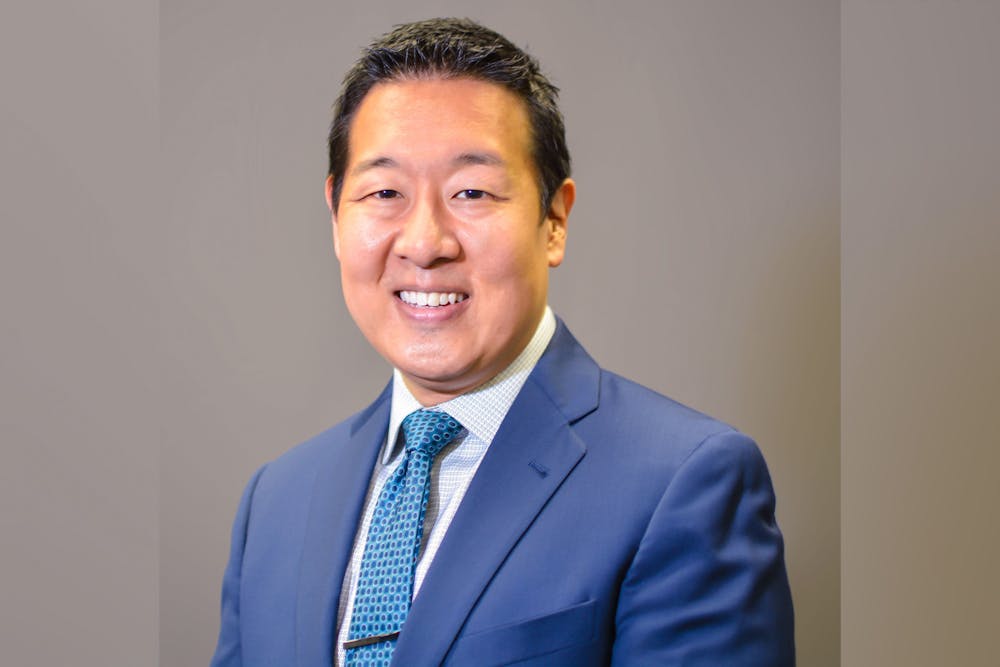Over 100 days into his tenure as the vice provost for University Life, Hikaru “Karu” Kozuma sat down with The Daily Pennsylvanian to discuss his vision for his new role.
Kozuma — who was announced as Penn's next VPUL in February — began his position on May 1. As VPUL, he supports staff and students across 16 different departments, including the Office of Fraternity and Sorority Life, Platt Student Performing Arts House, and Penn's seven cultural centers.
Kozuma said that one of his goals for his first year in the role was to set a new direction for University Life, adding that he hopes to create a pathway that aligns both with student needs and Penn’s goals.
“[I hope to] to build support for students and the staff on what is needed when they're trying to meet their academic passions, pursuing their co-curricular goals, or just trying to find a community,” Kozuma said.
Kozuma previously served as the executive director of College Houses and Academic Services since 2021. He succeeded Mamta Accapadi, who resigned after two years in the VPUL role last June. Prior to Kozuma's appointment, Senior Associate Vice Provost for Student Affairs Tamara Greenfield King served as interim vice provost for University Life.
Previously, Kozuma — a 2015 graduate of Penn's Graduate School of Education — served as associate vice provost for University Life and executive director of the Office of Student Affairs from 2010 to 2018. Kozuma also served as Amherst College's chief student affairs officer between 2018 and 2021.
Kozuma was appointed following a six-month search that began in late August 2022 when Interim Provost Beth Winkelstein announced the formation of an advisory committee to select the next vice provost for University Life. The committee was made up of 14 Penn faculty and student government representatives.
In regards to his new role, Kozuma emphasized getting to know individuals on a personal level, and he added that this approach was crucial when supporting marginalized communities on campus.
RELATED:
Penn appoints Hikaru Kozuma as next vice provost for University Life
LGBT Center Associate Director Malik Muhammad to transition to new University Life role
“I think we need to know and understand the multiple levels of what's going on, both defined by them, things that the community wants to celebrate, highlight, enhance, and also maybe some of the challenges that they are facing,” he said.
Expanding on his priorities, Kozuma said that he plans to further his understanding of the diversity of students' needs by engaging with and centering student voices. He added that maintaining long-term relationships with students is important to him since the needs of communities can evolve.
Before Kozuma assumed the VPUL role, University Life developed several strategic priorities, including intercultural dialogue, alliance for understanding, social justice peer educator training, cultural and heritage celebrations, and expanding emergency and opportunity funding. Kozuma told the DP that he will work alongside the University Life departments to determine whether these strategic priorities fit present needs or need to be altered to reflect student needs better.
“A lot of it really will be dictated by the people who are the experts and working with individuals,” he said.
However, Kozuma said that dialogue between students and staff members is what he aims to emphasize most in his new role.
Before coming to Penn in 2010, Kozuma was director of Residential Programs at Columbia University and worked at Middlebury College. While he initially intended to become a physician, he said he decided to take a gap year and work at Middlebury. He said his career aspirations shifted during this time, and he realized he wanted to work in higher education.
“As one sort of dream was fading, another one was taking more of a solid form,” he said.
Throughout the year, Kozuma told the DP he will strive to get to know students by attending events and programming and providing advice or guidance to students seeking his support.
“It really does invigorate me thinking about working with students," Kozuma said. "I want to get to know who they are and also get to know who they become.”









